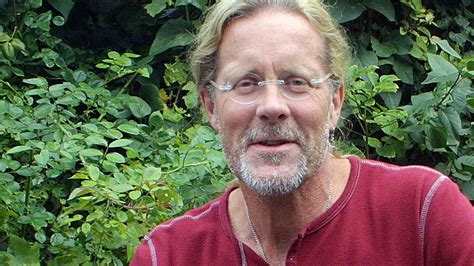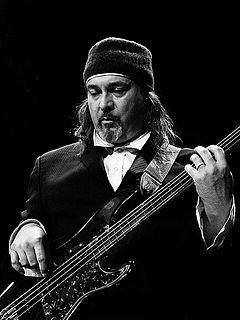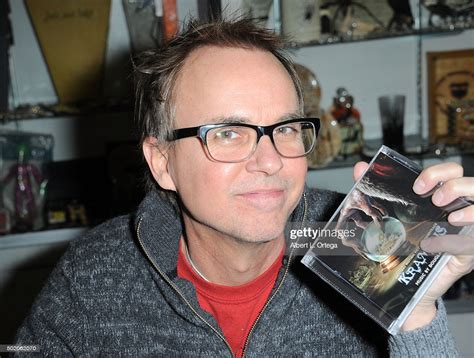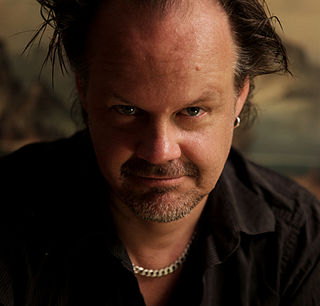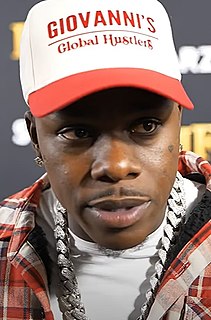A Quote by Johann Johannsson
I always relish the idea of collaborating with the director on creating the sound world, the sound spectrum, and the sound environment of the film. I use every means at my disposal to create a score that is as strong and powerful to enhance the director's vision for the film.
Related Quotes
My job on a film is to be responsible for all the sounds in the movie besides the music. Together with my team, we work on the dialogue, foley, sound effects, and sound design. We work closely with the director and picture editor in the prep period, and then together with them, the sound mixers, and music crew, we collaborate on the final mix of the film.
Film’s thought of as a director’s medium because the director creates the end product that appears on the screen. It’s that stupid auteur theory again, that the director is the author of the film. But what does the director shoot-the telephone book? Writers became much more important when sound came in, but they’ve had to put up a valiant fight to get the credit they deserve.
Ambient means the natural center or atmosphere of a space. All music has that in it- a space or center. I think it just means the atmosphere or what defines the environment of sound and maybe removing the more destructive, harsh elements and harder rhythmic elements and you get down to the stillness that's inherent. There's an ambient quality in every sound. You may have to enhance that to hear it or bring it out in a different way but there is that in every environmental sound.
I'm very interested in vertical space.I want the players to listen to their sound in such a way that they hear the complete sound they make before they make another one. So that means that they hear the tail of the sound. Because of the reverberation, there's always more to the sound than just the sound.
I generally go into a movie with a very strong vision, with how I want to make the film, how I want to shoot the film, how I want to edit the movie, what I want the sound to sound like. So I have a very concrete idea even if I don't storyboard it, I know exactly what I want to do once I get into the sequence. Now having said that, I try not to let that slave me to the process. So if I do storyboard a sequence I don't necessarily stick to it if I discover more exciting things on set.
A strong film director does leave you to your devices. A strong director allows you to be free and you trust that he's there and he will tell you if you've gone too far. A strong director allows you to be much more experimental and take greater chances than a director who isn't secure within himself.
I use all types of instruments, really depending on the film. Instrument choices are very much tied to lighting, colors, art direction, as well as the narrative elements. I have a great collection of vintage synths, and of course I do like to write for acoustic instruments. I find the depth and intricacy of sound and emotion you can get with acoustic ensembles extremely versatile and effective in the overall sound environment. Also, the human aspect of performance is such an important part of the music score to character connection.
Artists are creating their own genre sound, and other artists are building upon that sound and already creating a huge subculture created around one particular sound created by one artist. So, with all that happening, the genres are going to break down, and there's going to be a multitude of sound coming out.

